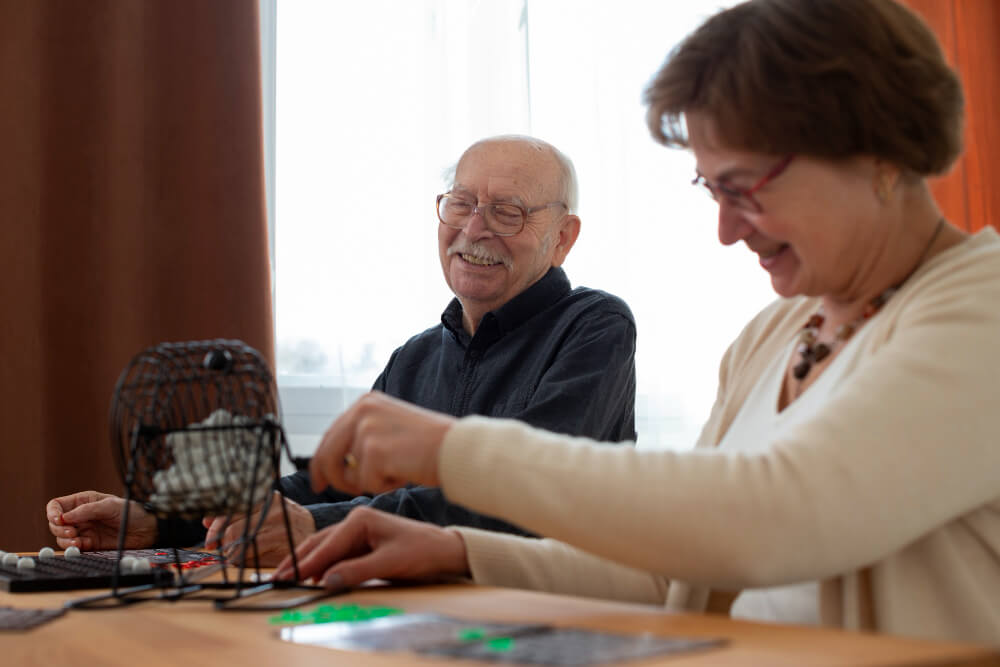The dementia landscape has been rapidly evolving, prompting healthcare professionals and families alike to explore alternative therapies beyond traditional pharmacological interventions. This shift is driven by a growing understanding of dementia’s complexity and the limitations of medication alone in addressing all aspects of patient care. Alternative approaches, ranging from art and music therapy to physical exercise and cognitive stimulation exercises, are gaining traction. These methods offer a more holistic approach to care, focusing on enhancing the quality of life for individuals with dementia and providing support that goes beyond the capabilities of medication.
Let’s know these methods and how they can improve the quality of life for Dementia Patients while providing caregivers with valuable tools and techniques.
Understanding Dementia
Dementia refers to a decline in cognitive capabilities severe enough to impact daily life. Alzheimer’s disease constitutes approximately 60-80% of all cases; however, other forms such as vascular dementia, Lewy body dementia, and frontotemporal degeneration also contribute significantly to this debilitating condition. As medical advancements continue to unravel the complexities surrounding dementias, complementary treatments have emerged as promising avenues worthy of exploration.
Alternative Options for Dementia Therapies
1) Art Therapy – Harnessing Creativity for Cognitive Improvement
Art therapy offers numerous benefits for people with dementia by tapping into their creative potential. Engaging in artistic activities can help improve memory recall, stimulate mental processes, reduce anxiety, and foster social interaction. Moreover, visual expression transcends language barriers often encountered during later stages of dementia progression, enabling nonverbal communication between patients and caregivers.
Steps to Implement Art Therapy:
- Partner with certified art therapists who specialize in working with dementia patients.
- Create dedicated spaces equipped with age-appropriate materials tailored to each patient’s abilities.
- Encourage regular participation in group or individual sessions.
- Display completed artwork prominently to foster pride and engagement.
2) Music Therapy – Soothing Melodies for Emotional Wellbeing
Another powerful tool in managing dementia symptoms lies within music therapy. Music triggers nostalgic memories, encourages physical movement, promotes relaxation, and facilitates emotional connection. By incorporating personalized playlists tailored to individual preferences, caregivers can create meaningful experiences that resonate deeply with those affected by dementia.
Strategies for Effective Music Therapy Integration:
- Curate playlists based on patients’ past preferences and significant life events.
- Organize live performances by local musicians or singers.
- Utilize technology such as headphones and portable devices for easy access to music.
- Encourage family members to share musical memories during visits.
3) Aromatherapy – Scented Solutions for Behavioral Symptoms
Aromatherapy utilizes the power of essential oils derived from plants to promote wellbeing. For individuals experiencing agitation or aggression associated with dementia, certain scents like lavender, lemon balm, and chamomile may provide soothing relief. Implementing aromatherapy alongside conventional treatment plans could potentially minimize reliance on psychotropic medications and enhance overall quality of life.
Ways to Introduce Aromatherapy in Dementia Care:
- Consult with aromatherapy specialists to select appropriate oils and application methods.
- Diffuse oils in common areas or distribute them via cotton balls placed near patients’ bedsides.
- Offer hand massages with diluted essential oil blends during one-on-one interactions.
- Monitor patients’ responses and adjust accordingly.
4) Pet Therapy – Furry Friends Foster Joy and Comfort
Interacting with animals has proven therapeutic effects, particularly among older adults suffering from cognitive impairments. Pet therapy provides opportunities for exercise, companionship, and sensory engagement, leading to improved mood, reduced stress levels, and increased self-esteem. Furthermore, animal-assisted interventions offer respite for exhausted caregivers, fostering positive interactions between pets, patients, and support networks.
Tips for Implementing Pet Therapy:
- Collaborate with reputable organizations specializing in animal-assisted interventions.
- Ensure staff and volunteers receive proper training on handling animals and supervising interactions.
- Develop clear guidelines regarding pet allergies, phobias, and safety concerns.
- Schedule regular visits from therapy animals, allowing ample time for bonding and enjoyment.
5) Garden Therapy – Nurturing Nature Connections
Gardening and plant cultivation tap into our innate desire for connection with nature. Horticultural therapy offers tangible rewards through nurturing growth and observing results firsthand. Benefits include enhanced fine motor skills, heightened focus, and decreased agitation. Additionally, outdoor spaces encourage reminiscence, contributing to a sense of purpose and accomplishment for persons living with dementia.
Ideas for Successful Garden Therapy Programs:
- Establish indoor or outdoor gardens accessible to all residents.
- Provide adaptive tools and containers suitable for varying levels of ability.
- Assign simple maintenance tasks such as watering, pruning, or planting seeds.
- Host seasonal events celebrating harvests and garden milestones.
6) Virtual Reality Experiences – Immersive Worlds Revitalize Memories
Emerging technologies like virtual reality (VR) enable immersive experiences designed to stimulate recollections and engage users in novel ways. Customized VR environments transport participants back to familiar places, spark conversations, and elicit emotions tied to cherished memories. While still in its infancy, this cutting-edge approach holds great promise for enriching the lives of those navigating the challenges posed by dementia.
Conclusion
As traditional dementia care options face growing challenges, embracing alternative therapies presents a promising solution to meet the rising demand for support. These innovative approaches not only complement existing treatment modalities but also empower individuals with dementia to lead fulfilling lives despite cognitive decline. Promoting the widespread adoption of alternative therapies requires collaboration among healthcare providers, policymakers, and dementia care communities to ensure care that is accessible, affordable, and effective for all those impacted by dementia.
In conclusion, exploring alternative therapies for dementia management presents a viable avenue for addressing the supply versus demand crisis within the field.





